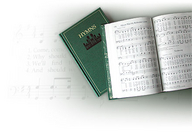 Question: Why should music in sacrament meetings be different from music in other Church meetings?
Question: Why should music in sacrament meetings be different from music in other Church meetings?
Answer: There is only one standard for music in the Church. It applies to music and all other performing and fine arts. It is best stated in the words of our Thirteenth Article of Faith: "If there is anything virtuous, lovely, or of good report or praise worthy, we seek after these things. "We have been encouraged to cultivate wholesome, uplifting, and edifying music because it blesses everybody. It brings joy and happiness into our lives.
Music presented in sacrament meetings is intended to support the worship experience of each member of the Church. It "should be worshipful, faith-promoting, and gospel-oriented" (General Handbook of Instructions, p. 7-2). It should include the basic elements of a prayer (see Doctrine & Covenants 25:12), containing a devotional quality and reverential mood. "Music in sacrament meetings should help members worship and feel the sacred spirit of the Sabbath and the spirit of revelation" (Church Music Handbook, 1993, p.2).
Sacred music which does not meet these guidelines will generally not support a meaningful worship experience. It may, instead, draw too much attention to itself.
The act of worship consists of showing love, reverence, and devotion for God and the gospel. It strengthens our spirits beyond the strength of our physical bodies and, therefore, helps us to gain salvation. We are commanded to worship the true and living God and to do it by the power of the spirit and in the way the Lord has ordained.
Music in sacrament meetings is inspirational and appropriate when it conforms to a delicate balance of basic ingredients of worshipful music; simple melodies, agreeable harmonies, and subdued rhythmic patterns will generally result in the most desirable kind of music for worship.
Hymns, anthems, and hymn arrangements that use dissonances sparingly are often most suitable in sacrament meetings. Other sacred music that meets guidelines may also be used on occasions. These might include such favorites as "The Lord’s Prayer," "O Divine Redeemer," "God So Loved the World," "l Walked Today Where Jesus Walked," "In My Father’s House Are Many Mansions," "The King of Love My Shepherd Is," "Still, Still With Thee," and "Love So Amazing, So Divine."
Although most musical selections for sacrament services should come from the Church-published Hymns, the Children’s Songbook, orThe Choirbook, other appropriate music that is in keeping with the spirit of the hymns of the Church may occasionally be used. (See Bulletin 1995-1; Church Music Handbook , 1993, p. 20).
"Music can set an atmosphere of worship which invites (the) spirit of revelation, of testimony . . . the Spirit does not ratify speech nor confirm music which lacks spiritual substance." (President Boyd K. Packer, October 1991 General Conference).